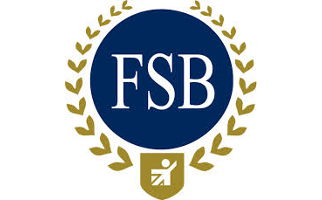Thursday September 17th 2015

A new study from the Federation of Small Businesses (FSB) reveals Scottish small business opinion on the forthcoming European Union membership referendum.
The research shows that three fifths (59.9%) of Scottish FSB members are currently likely to vote to remain in the EU, the highest proportion among UK nations. However, the study also shows that well over a third of UK members (37.0%) don’t feel well informed about the business impact of the vote.
Based on feedback from 6263 members – 571 in Scotland – the comprehensive study examines current FSB member voting intentions, alongside small businesses’ views on EU reform. It also provides new insights into regional and national voting preferences.
Mike Cherry, the FSB’s policy director, said:
“The study attempts to understand current attitudes towards EU membership among our members. This research is a vital starting point in outlining the key issues and areas of concern for small businesses in the EU referendum debate. Regardless of what a firm’s current position is, there is a shared message that small businesses feel they lack clear, impartial information on which to form their views.”
Andy Willox, the FSB’s Scottish policy convenor, said:
“During this debate, the FSB’s role will be to ensure the small business voice is heard. Our approach will reflect the one we took during the independence referendum: ensuring that our members have the information they need to make the decision which is right for them and their business.
“This research underlines the variety of views in the enterprise community and shows that both sides of the debate have a lot of work to do to convince large numbers of Scottish businesses.”
Rebecca Stamp, Verve Director of Client Services, said:
“This unique report is based on research that is both robust and representative. We were particularly impressed with the level of FSB member engagement, receiving 6,263 survey responses and over 1,300 individual comments in the online discussion forum. This dual research approach allowed us to explore in detail the complex and sometimes emotive issues at the heart of what FSB members feel about the European Union.”
The FSB commissioned independent research agency Verve to conduct the study in a two-staged quantitative and qualitative approach. Across June and July this year, 6,263 FSB members completed an online survey. This was followed by a cross section of 123 members participating in a discussion forum. The forum participants were carefully chosen to ensure a balanced and representative sample from the nations, regions, business types and voting preferences within the FSB membership.
Key findings from the research:
To the question: “Imagine that the referendum on whether the UK should remain a member of the European Union was held today. Based upon the information you know today, how would you vote?”
Who is most likely to vote ‘Yes’
Who is most likely to vote ‘No’
Where the vote is currently close or undecided
Amongst members who would currently vote for the UK to remain a member of the EU, the most popular outcome was the transfer of EU powers back to UK
Amongst FSB members who would vote for the UK to leave the EU, the most popular outcome was improving trade links with rest of the world
FSB members’ opinion and understanding of the EU
* This figure combines those who scored 4 or 5 on a 5 point scale where 5 is very well informed and 1 is not at all informed.
** This figure combines those who scored 1 or 2 on a 5 point scale where 5 is very well informed and 1 is not at all informed.
FSB members’ opinions on whether the EU is beneficial to both the economy and their businesses
* These figures combine those who said they strongly or slightly agree that the UK’s membership of the EU is beneficial for the UK economy or their business
** These figures combine those who said they strongly or slightly disagree that the UK’s membership of the EU is beneficial for the UK economy or their business
FSB members’ opinions on the potential impact of the UK leaving/staying in the EU
On leaving:
On remaining:
* These figures combine those who said that withdrawing /remaining in the EU would have a very/somewhat negative impact on their business
** These figures combine those who said that withdrawing /remaining in the EU would have a very/somewhat positive impact on their business
Tweet Share on Facebook